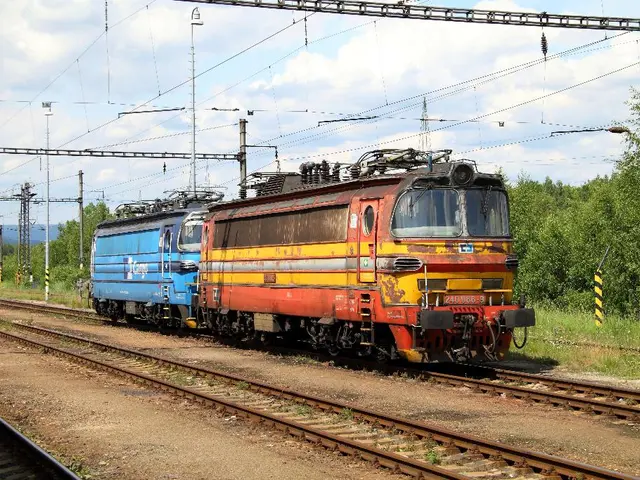Reasons given by analysts for the Tenge's devaluation against the Dollar, but the Manat's rate stability.
Let's break down why Kazakhstan and Azerbaijan struggle differently with low oil prices.
While both countries may have economies built around oil, the Kazakh tenge and Azerbaijani manat react differently during economic downturns. According to analysts at BCC Invest, when oil prices are low, the tenge weakens while the manat maintains its strength.
Kazakhstan, for instance, needs oil at $100 per barrel for currency and economic stability, whereas Azerbaijan can manage with just $60. This discrepancy lies in the countries' current account balances, as reported by BCC Invest analysts.
The stream of income from oil exports in Kazakhstan far exceeds its outflow to foreign investors, making it more vulnerable to currency depreciation. In contrast, Azerbaijan has fewer foreign investment obligations, enabling it to retain stability even during challenging oil price periods. In other words, the Kazakh economy seems to be living high on the hog, while Azerbaijan manages its resources more conservatively.
Not only the US dollar, but the tenge has also lost ground against other foreign currencies, with the euro surpassing the 600 tenge mark for the first time. So, what's driving this overspending in Kazakhstan? Analysts suggest that it's due to the ratio of primary income balance to trade balance in Kazakhstan being significantly higher than that of Azerbaijan, meaning Kazakhstan sends more money abroad than it earns itself.
Overall, it's not just about the oil but the way the countries manage their finances. Kazakhstan needs to reevaluate its fiscal strategy to ensure fiscal stability and maintain the tenge's value, just as Azerbaijan has demonstrated during difficult economic times.
Predictions by experts and analysts have suggested that the dollar's exchange rate will drop significantly in Kazakhstan, and the euro will surpass the 600 tenge mark for the first time. This is an important factor for those planning to invest or trade in Kazakhstan.
In conclusion, Kazakhstan's heavy dependence on oil, fiscal vulnerabilities, and specific monetary policy challenges contribute to a more pronounced depreciation of the tenge compared to the Azerbaijani manat during periods of low oil prices. It's high time for Kazakhstan to rethink its fiscal strategy and manage its resources more prudently.
- Despite sharing an oil-centric economy, Kazakhstan requires a higher oil price of $100 per barrel for stability compared to Azerbaijan's manageable $60, due to differences in their current account balances.
- The flow of income from oil exports in Kazakhstan exceeds its outflow to foreign investors, making it more susceptible to currency depreciation and resulting in the tenge losing ground against foreign currencies like the euro.
- In contrast, Azerbaijan, with fewer foreign investment obligations, retains stability even during challenging oil price periods.
- The predictions suggest that the dollar's exchange rate will drop significantly in Kazakhstan, and the euro will surpass the 600 tenge mark for the first time, highlighting the need for Kazakhstan to reconsider its fiscal strategy to ensure fiscal stability and maintain the tenge's value.









